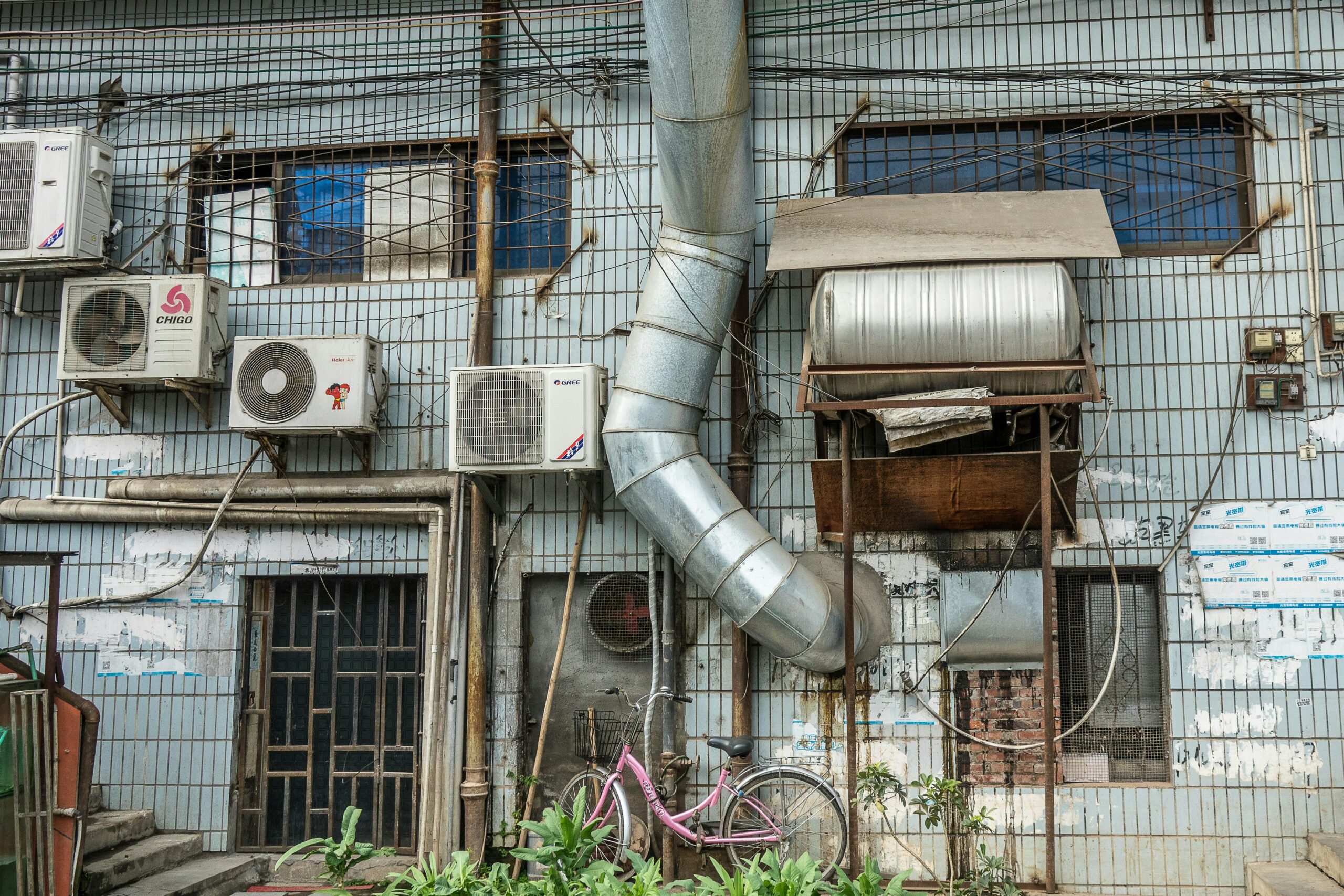Serving The Wasatch Front Area
2024 Home Cooling Essentials: Installation, Repairs, and Staying Cool
September 3, 2024
Are you trying to create the perfect indoor climate? Our 2024 Home Cooling Guide is here to help. Whether you’re in the market for a new air conditioning system, troubleshooting issues with your current setup, or simply seeking ways to beat the heat during sweltering summers, this guide has all the information you need. We’ll cover everything from:
- Recognizing when your AC needs attention
- The critical role of regular maintenance
- Tips to boost your system’s energy efficiency
By the time you finish this guide, you’ll have the knowledge to make smart decisions that keep your home comfortable, lower your energy bills, and extend the life of your air conditioning system.
Expert Tips for Air Conditioner Installation
Installing an air conditioner is more than simply picking out a unit—it’s about finding the perfect match for your home’s unique needs. From selecting the ideal system to ensuring a seamless installation, these tips will guide you through the entire process, ensuring you achieve optimal comfort and efficiency.
Choosing the Perfect Air Conditioner for Your Home
Selecting the right air conditioner is essential to maintaining a cool and comfortable living space. It’s important to consider factors like the size of your home and the climate you live in. An undersized unit will struggle to keep up, while an oversized one can lead to unnecessary energy consumption. Pay close attention to energy efficiency ratings to help reduce your utility costs. Consulting with a professional can also ensure you find the best unit tailored to your home’s specific needs.
Post-Installation Maintenance: Keeping Your AC in Peak Condition
To ensure your air conditioner operates efficiently year after year, regular maintenance is crucial. Here are three essential tips to keep your system running smoothly:
- Replace or Clean Filters Regularly: Swap out or clean your filters every 1-3 months to maintain optimal airflow and reduce wear on the system.
- Keep the Outdoor Unit Clear: Make sure the area around your outdoor unit is free from debris like leaves and grass clippings to prevent blockages and ensure proper operation.
- Schedule Annual Professional Inspections: An annual tune-up by a professional can help identify and address potential issues before they turn into costly repairs.
Why You Need to Call Comfort Solutions for Air Conditioner Installation
“Tyler and Alex C. Did a fantastic job installing my new Air Conditioner.” Stated Carina Nation in her 5-Star Google Review. “Aaron B was my comfort advisor, and gave me a great estimate on my Air Conditioner. Highly recommend. 10/10.”
Our Installation Process: What Comfort Solutions Brings to Your Home
Choosing Comfort Solutions for your air conditioner installation means you’re in for a seamless, stress-free experience. We begin by conducting a comprehensive evaluation of your home’s cooling requirements, allowing us to recommend the most suitable unit that fits both your space and budget. During the installation, our skilled technicians work diligently, respecting your home and your time. Once everything is set up, we’ll guide you through the operation of your new system and share essential maintenance tips to keep it running smoothly long after we’ve finished.
Indicators That Your Air Conditioner Needs Repair
Over time, consistent use can take a toll on your air conditioning system, leading to various issues. Being able to identify the early warning signs of a problem can save you from expensive repairs down the road. Whether it’s a small glitch or a significant malfunction, addressing air conditioner issues promptly ensures your home stays cool and comfortable.
AC Not Blowing Cold Air
When your air conditioner fails to produce cool air, it’s often a sign of underlying issues. This could be due to a refrigerant leak or a malfunctioning compressor. Addressing these problems quickly is crucial to restoring your AC’s performance and keeping your home comfortable.
Insufficient Airflow
If your air conditioner is struggling to push out air, several factors could be at play. Common causes include clogged filters, obstructed vents, or issues within the ductwork. Resolving these problems promptly can enhance your system’s efficiency and restore optimal performance.
Air Conditioner Constantly Cycling On and Off
If your air conditioner is repeatedly turning on and off, known as frequent cycling, it could be a sign of underlying issues such as a faulty thermostat, dirty coils, or an incorrectly sized unit. Addressing this problem swiftly is essential to avoid further damage and ensure your system runs efficiently.
Unusual Sounds from Your AC
If your air conditioner starts making strange noises like grinding, rattling, or hissing, it’s likely a sign of mechanical problems or loose components. Promptly addressing these sounds can prevent more severe damage and costly repairs down the line.
Water Leaks Near Your AC Unit
If you notice water collecting around your air conditioner, it’s a red flag that something is wrong. This could be due to a blocked drain line or a refrigerant leak, both of which need immediate attention to avoid potential damage to your system and your home.
Excess Indoor Humidity
If your air conditioner is failing to manage humidity levels effectively, it’s crucial to address the issue right away. This could be due to a malfunctioning system or an improperly sized unit. Ignoring this problem can lead to mold growth and potential health risks.
Recognizing the Need for Emergency AC Repair
Identifying when to seek emergency air conditioner repair can save your system from further damage. Be on the lookout for these critical warning signs:
- Total System Failure: If your AC completely shuts down, particularly during extreme heat, it’s time to call for immediate help.
- Strange Noises: Loud or unusual sounds like grinding, banging, or hissing signal a serious problem.
- Water Leaks: Pooling water around your unit often indicates a significant issue that requires prompt attention.
- Lack of Cooling: If your AC is running but not cooling your home, it’s essential to get professional help right away.
Factors Influencing Air Conditioner Repair Costs
The cost of air conditioner repairs can fluctuate based on a variety of factors. Understanding these variables can help you plan your budget and make informed decisions about your system. Whether facing a minor repair or a more complex issue, being aware of what drives the costs can make the repair process smoother and less stressful.
Nature of your Problem
The specific problem with your air conditioner is a key factor in determining repair costs. Minor issues, such as a clogged filter or a thermostat adjustment, tend to be more affordable. On the other hand, more complex problems like compressor failures or refrigerant leaks can be significantly more expensive due to the involved labor and the cost of parts. The complexity of the repair directly influences the overall expense.
Age of Your Air Conditioning Unit
Repairing older air conditioning units can be more expensive. As parts become outdated and harder to find, the cost of repairs tends to rise. Additionally, older systems often require more frequent repairs. It’s essential to consider whether the cost of ongoing repairs justifies keeping an older unit, or if upgrading to a newer, more efficient model would be a better investment.
Cost of Parts for Repairs or Replacements
The type of parts needed for your air conditioner repair significantly impacts the overall cost. Basic components, such as filters or fuses, are usually affordable. However, more critical parts like compressors or coils can be much more expensive. Additionally, the availability and quality of these replacement parts play a role in determining how much the repair will cost.
Essential Air Conditioner Maintenance Tasks
Regular maintenance is key to extending the lifespan of your air conditioning system. Routine check-ups help prevent unexpected breakdowns and ensure your home stays comfortable. Familiarizing yourself with basic maintenance tasks can significantly improve your AC’s performance and reliability over time.
Replacing Filters
Changing your air filter regularly is one of the easiest yet most important maintenance tasks for your AC. Despite its simplicity, many people overlook it. A clean filter enhances airflow, eases the strain on your system, and helps maintain high indoor air quality. Depending on your usage, aim to replace filters every 1-3 months.
Cleaning the AC Coils
Dirty coils can significantly reduce your AC’s energy efficiency and increase your energy bills. Over time, dust and debris build up on the coils, making it more difficult for your system to cool your home effectively. Regularly cleaning the evaporator and condenser coils is essential for maintaining optimal cooling performance and preventing unnecessary wear and tear on your system.
Thermostat Calibration
Keeping your thermostat properly calibrated is crucial for maintaining the ideal temperature in your home. Over time, thermostats can lose accuracy, leading to uneven cooling and increased energy consumption. Regular calibration ensures that your AC system responds accurately to temperature changes, helping to keep your home comfortable and energy-efficient.
Monitoring Refrigerant Levels
Keeping your air conditioner’s refrigerant levels in check is vital for maintaining its efficiency. When refrigerant levels are low, your system has to work harder, which can lead to higher energy bills and even potential damage. Regularly checking and adjusting refrigerant levels helps prevent issues such as ice buildup and insufficient cooling, ensuring your AC operates smoothly.
Electrical Components Inspection
Regularly inspecting your air conditioner’s electrical components is crucial for ensuring safe and reliable operation. Loose connections, frayed wires, or faulty wiring can lead to serious issues, including system failures or safety hazards. Conducting routine checks on these components helps prevent unexpected breakdowns and keeps your AC running smoothly.
The Advantages of Routine Air Conditioner Maintenance
Consistent maintenance is key to keeping your air conditioner in peak condition. By staying diligent with regular upkeep, you ensure that your system operates more reliably and efficiently. Additionally, proper maintenance helps you avoid costly repairs and reduces the risk of unexpected breakdowns.
Enhanced Energy Efficiency
Routine maintenance plays a crucial role in boosting your air conditioner’s energy efficiency. By keeping filters and coils clean and ensuring components are properly calibrated, your unit can cool your home more effectively without unnecessary strain. This allows your system to run at its optimal performance, saving energy and reducing overall wear.
Reduced Energy Costs
A well-maintained air conditioner operates more efficiently, using less energy to keep your home cool. By regularly performing maintenance tasks, you minimize the strain on your system, leading to lower energy consumption and, as a result, reduced utility bills.
Prolonged System Lifespan
Regular maintenance significantly extends the life of your air conditioning unit. By catching and resolving minor issues early, you prevent them from escalating into major problems. This proactive approach reduces wear and tear, allowing your system to operate efficiently for many years and postponing the need for an expensive replacement.
Higher Indoor Air Quality
Routine air conditioner maintenance plays a vital role in enhancing the quality of air inside your home. Clean filters are essential for effectively removing dust, allergens, and pollutants, ensuring that the air circulating through your living spaces is fresh and clean. This results in a healthier environment for you and your family.
Lower Repair Expenses
Routine maintenance can save you from expensive repairs by addressing small issues before they escalate into major problems. By catching these early, you prevent significant system breakdowns and extend the lifespan of your AC. Regular upkeep is a smart investment that reduces the overall cost of maintaining your air conditioning system.
Maximizing AC Energy Efficiency: Tips to Reduce Your Cooling Costs
While regular maintenance is crucial for keeping your air conditioning system efficient and your energy bills low, there are additional strategies you can employ to further cut down on costs. Let’s explore some smart adjustments you can make to optimize your AC’s performance and minimize your utility expenses.
Effective Insulation
Proper insulation is key to maintaining a stable indoor temperature and easing the load on your air conditioner. Quality insulation traps cool air inside while keeping heat out, allowing your AC to operate more efficiently and reducing overall energy consumption.
Leverage a Programmable Thermostats
Using a programmable thermostat enables you to manage your AC’s operation more efficiently by running it only when needed. By scheduling temperature adjustments based on your routine, you can minimize unnecessary energy consumption and avoid overcooling your home.
Ductwork Sealing
Air leaks in your ductwork can lead to significant energy loss by allowing cool air to escape before it reaches your living areas. This forces your AC to work harder than it should. By sealing these leaks, you can enhance your system’s efficiency and lower your energy bills.
Upgrading to Energy-Efficient Windows
Energy-efficient windows play a crucial role in keeping your home cool by minimizing heat transfer from the outside. By reducing the amount of heat entering your home, these windows lessen the workload on your AC, leading to significant savings on cooling costs.
Enhancing Efficiency with Fans and Shades
Ceiling fans and window shades are straightforward yet powerful tools for boosting your AC’s efficiency. Ceiling fans help circulate cool air throughout your home, lightening the load on your air conditioner. Meanwhile, shades block out the sun’s heat, further reducing the demand on your cooling system.
Choosing an Energy-Efficient AC Unit
Selecting an energy-efficient air conditioner is key to lowering your energy bills and minimizing your environmental footprint. To make an informed decision, it’s important to understand the key factors that contribute to efficiency. Here are four crucial aspects to consider.
Leveraging SEER Ratings
SEER, or Seasonal Energy Efficiency Ratio, is a key metric that measures the cooling efficiency of an air conditioner. The higher the SEER rating, the more energy-efficient the unit is. Familiarizing yourself with SEER ratings can help you choose a system that maximizes efficiency and reduces energy costs.
Selecting the Correct Unit Size
The size of your air conditioning unit has a significant impact on its efficiency. A unit that is too small will have difficulty cooling your home, while an oversized unit can result in higher energy bills and uneven temperatures. Choosing the right size ensures that your AC operates consistently and efficiently.
Beating the Summer Heat: Staying Cool When Temperatures Soar
Keeping cool during the intense heat of summer takes some foresight and smart strategies. By preparing your air conditioning system in advance and adopting effective cooling practices, you can ensure your home remains a comfortable refuge. Here are three key steps to take before the summer heat hits.
Get Your AC Ready for the Summer Heat
Prepare your air conditioner for the summer’s extreme temperatures to avoid unexpected breakdowns. Conducting a thorough maintenance check before the season starts is crucial to keeping your home cool during the hottest days. Include these tasks on your pre-summer checklist:
- Clean and replace filters
- Ensure proper insulation
- Check and seal ductwork
The Most Common AC Issues During Extreme Heat
High temperatures can place extra strain on your air conditioning system, often leading to performance issues. Each summer, homeowners frequently encounter these common problems:
- Low refrigerant levels
- Refrigerant leaks
- Leaky ducts
- Clogged air filters
- Dirty condenser coils
A thorough pre-summer check can help prevent many of these issues. If they do arise, addressing them quickly is essential to avoid system breakdowns.
Staying Cool During Heat Waves: Simple Tips Beyond Your AC
When a heat wave hits, relying solely on your air conditioner may not be enough to keep your home comfortable. Enhance your cooling strategy with these easy tips:
- Use Ceiling Fans: Circulate cool air throughout your home to ease the burden on your AC.
- Close Blinds and Curtains: Block out direct sunlight to naturally lower indoor temperatures.
- Limit Heat-Producing Activities: Avoid using ovens and other appliances that generate heat during the hottest parts of the day.
- Smart Thermostat Settings: Set your thermostat to a comfortable level that keeps your home cool without overloading your system.
Thermostat Control with Smart Home Systems
Smart home technology has transformed the way we maintain comfort in our homes. With a thoughtfully integrated smart home system, you can easily control your thermostat, enhancing both convenience and energy efficiency.
The Popularity of Smart Homes
Smart home systems have gained popularity for their ability to simplify daily life and cut costs. Imagine being able to adjust your thermostat or turn off lights from your smartphone, whether you’re at home or on the go. These systems offer unparalleled convenience and greater control over your living environment, all while reducing energy consumption and saving you money over time.
Advantages of a Smart Thermostat
A smart thermostat brings multiple benefits, making it easier to manage your home’s temperature. Here’s how this innovative device can enhance your daily life:
- Remote Control: Manage your home’s temperature from anywhere using your smartphone.
- Energy Monitoring: Keep track of your energy usage and discover new ways to save.
- Automated Scheduling: Program the thermostat to adjust temperatures automatically based on your routine.
- Increased Comfort and Convenience: Experience a more comfortable home with minimal effort, thanks to advanced features and intuitive controls.
Clean Ducts for Optimal Performance
Keeping your home’s ductwork clean is crucial for maintaining healthy air quality and ensuring your heating and cooling systems function efficiently. Regular cleaning prevents dust buildup and helps your system perform at its best.
Why Clean Ducts Are Important
Clean air ducts are essential for sustaining healthy indoor air quality and optimal HVAC performance. Over time, dust, allergens, and debris can build up in your ductwork, leading to restricted airflow and the circulation of contaminants in your home. Regular duct cleaning ensures your system operates efficiently and keeps your indoor air fresh and clean.
Indicators That Your Ducts Need Cleaning
Certain signs in your home may signal that it’s time for a thorough air duct cleaning. Be on the lookout for:
- Excessive dust accumulation
- Frequent allergy or respiratory problems
- Uneven airflow throughout your home
- Musty or unpleasant odors
- Visible mold growth near vents
Expert Duct Cleaning Services
Professional duct cleaning utilizes specialized equipment to thoroughly remove dust, debris, and other contaminants from your ductwork. These services enhance airflow and improve system efficiency while promoting a healthier living environment by ensuring your air ducts are free of pollutants.
Recent News

How to Stay Cool During the Summer Heat
April 21, 2025
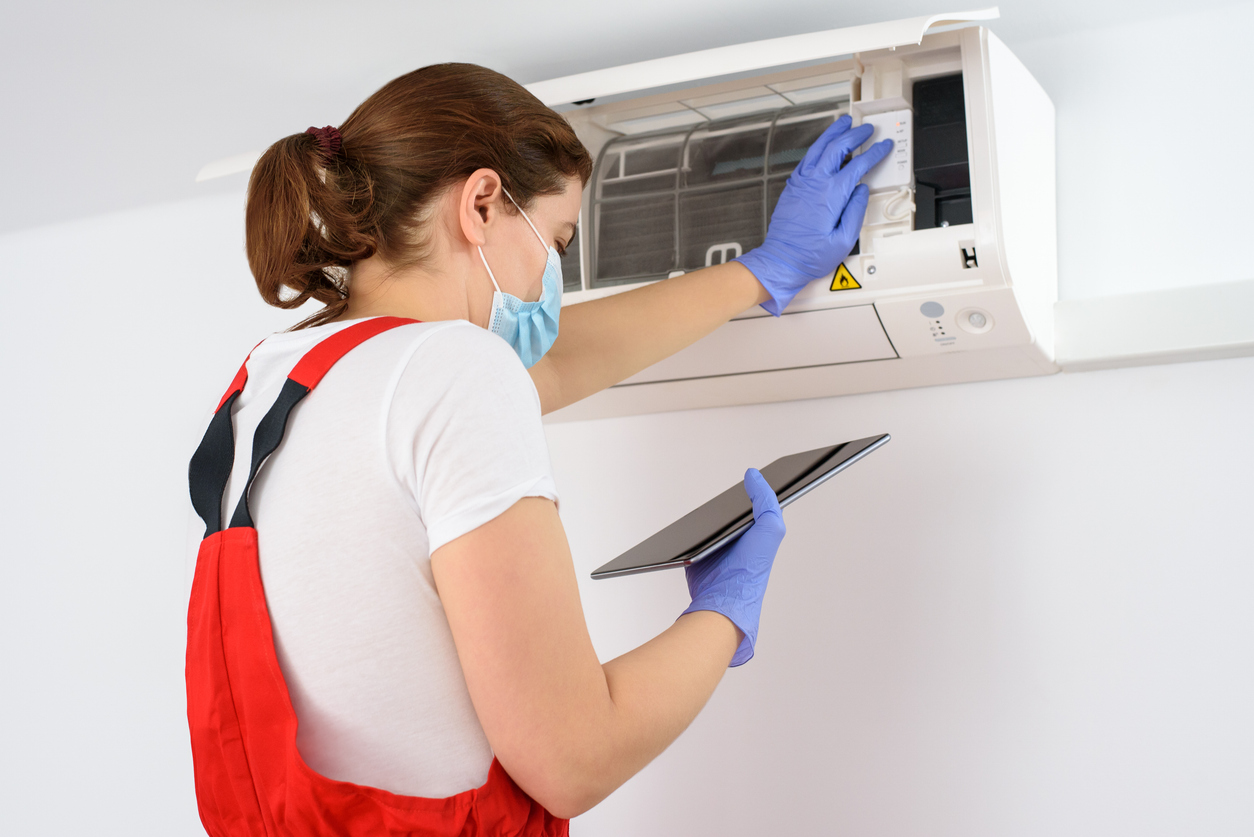
When to Upgrade Your AC Systems: Benefits & More
February 25, 2025
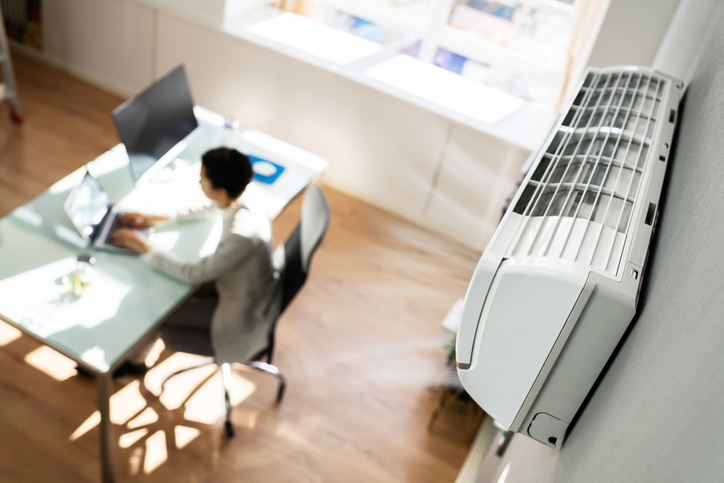
Why Remote Workers Should Upgrade Their HVAC
February 10, 2025
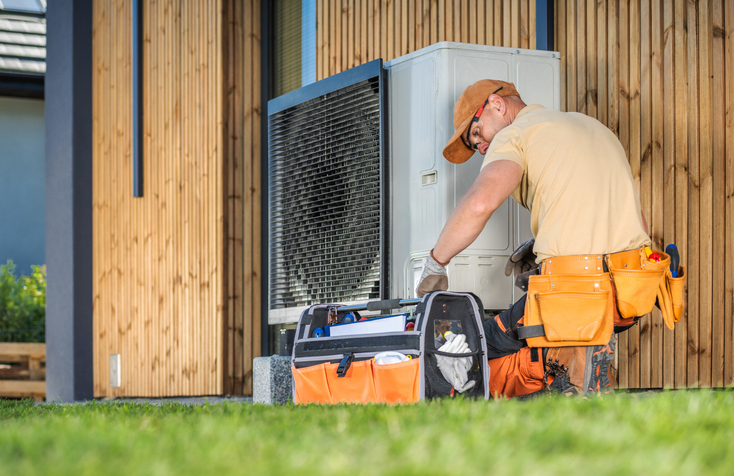
Common Home Heating, Furnace Repair & Replacement Myths
February 7, 2025
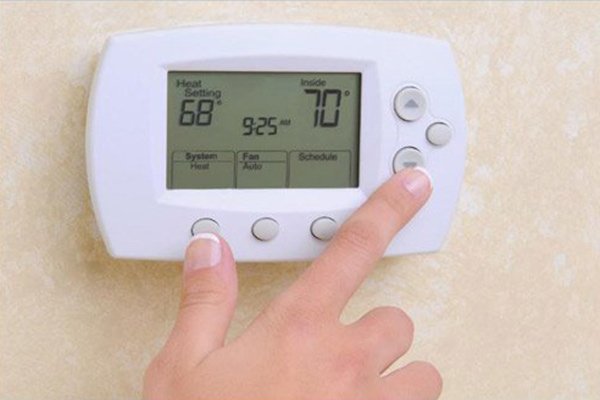
Keep Your Fireplace and HVAC Systems Running Strong All Winter
December 6, 2024
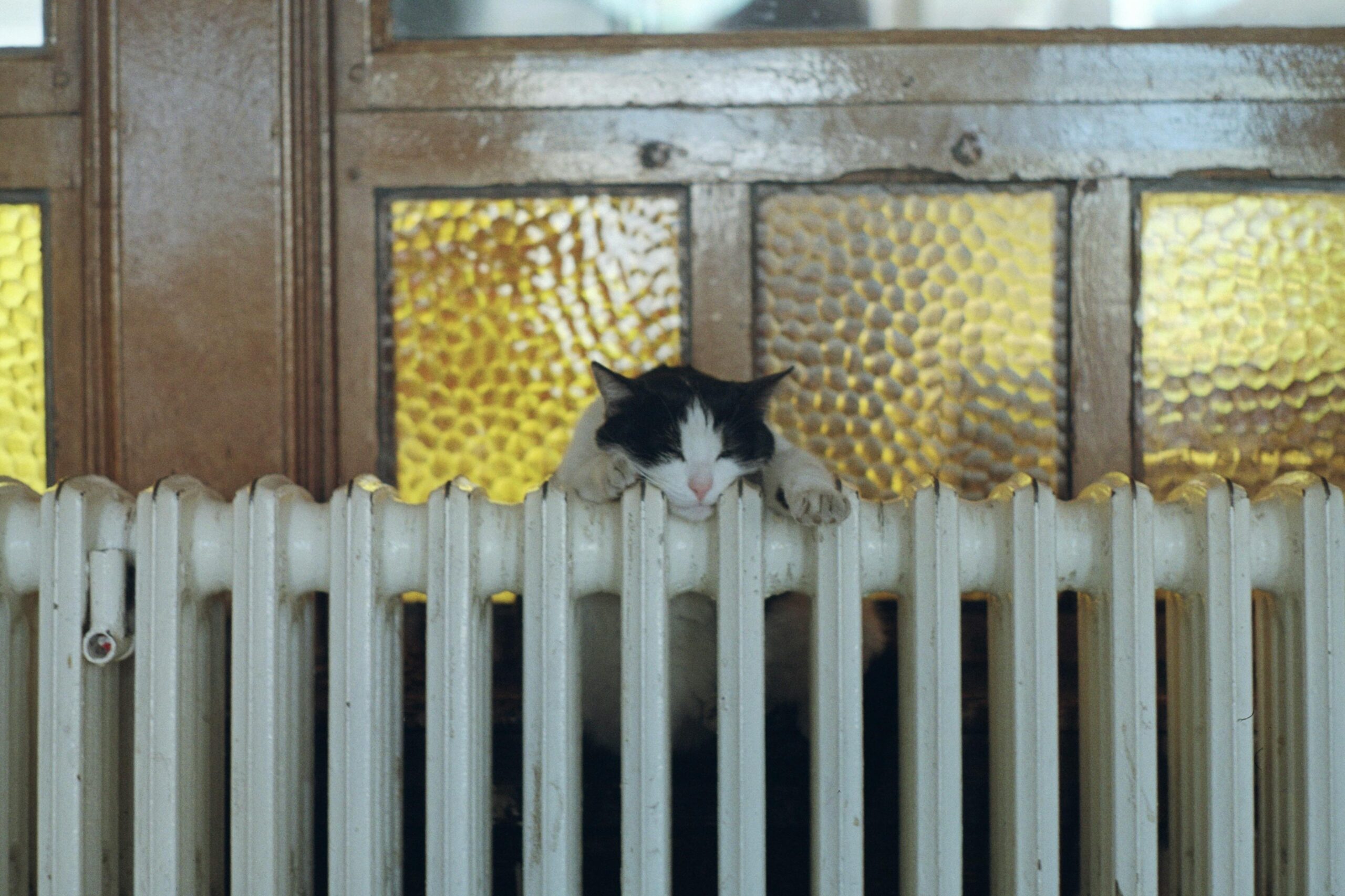
Your Comprehensive Heating Guide: Installation, Repair, Efficiency & More
September 18, 2024
